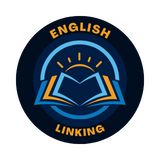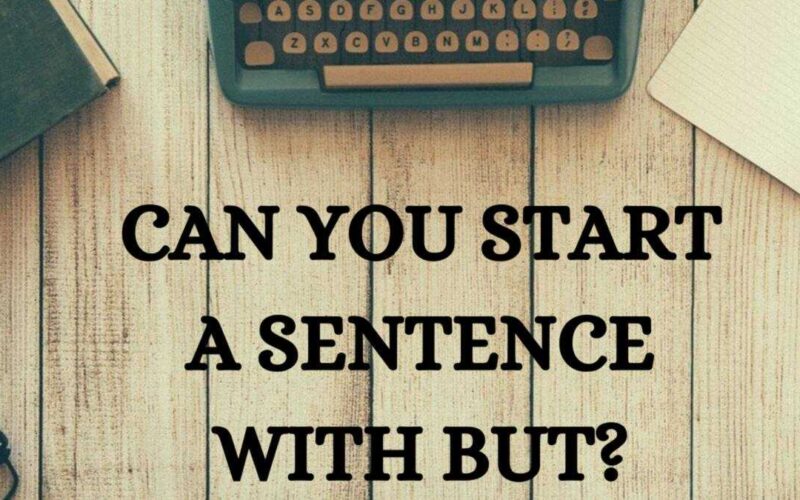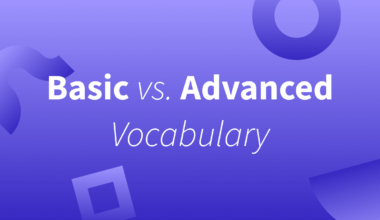Let’s get straight to the point: Can you start a sentence with but? The answer is a resounding yes! But (see what I did there?) you’ve probably been told otherwise at some point in your life.
So, why does this question still cause so much confusion? More importantly, why should you embrace this so-called “rule-breaking” with open arms?
In this article, we’re going to dive deep into the reasons you can—and should—start sentences with “but.” Whether you’re a seasoned writer, a student, or someone trying to elevate their email game, you’ll find this guide both enlightening and fun.
Why Do People Think You Can’t Start a Sentence with “But”?
If you’ve ever had a teacher with a passion for proper grammar, you might have been told that starting a sentence with “but” is a cardinal sin. This idea was so ingrained in early education that many of us grew up believing it was an unbreakable rule. But (there it is again!) Like many grammar myths, this one doesn’t hold up under modern scrutiny.
So, where did this misconception come from?
The Historical Roots of This Myth
The “no starting with ‘but’” rule is deeply rooted in a time when writing was much more formal. Centuries ago, prose had to follow strict rules to be considered acceptable. It was all about maintaining a formal tone, avoiding abrupt shifts in ideas, and ensuring that sentences connected smoothly in long, uninterrupted paragraphs.
As a result, words like “but” and “and” were often banished from the beginning of sentences because they were seen as too informal and unsophisticated. Fast forward to today, and those rules feel outdated in a world where we prize clear, direct, and engaging communication. In fact, many of the writing rules from the past have been relaxed to accommodate more modern, conversational styles.
Writing in the Modern Era: Breaking the Rules (Responsibly)
Nowadays, writing is evolving to be more conversational and reader-friendly. If you think about your favourite blogs, articles, or even social media posts, they likely sound less like legal documents and more like a friendly chat over coffee. That’s because modern writing often mimics natural speech—and guess what? We start sentences with “but” all the time in conversation!
When used correctly, starting a sentence with “but” can make your writing more compelling and accessible. Let’s explore how:
Why Starting a Sentence with But is Actually a Smart Move
1. It Creates Contrast and Emphasis
Starting a sentence with “but” signals to the reader that something important is coming. It creates an immediate contrast between two ideas, making it crystal clear that what follows is different or contradictory to what was said before.
For example:
“I love running in the mornings. But waking up at 5 AM is a struggle.”
Here, the word “but” immediately sets up a contrast between two opposing ideas. This grabs the reader’s attention and emphasizes the challenge of waking up early, despite the enjoyment of running.
Without “but,” the transition between those ideas could feel less sharp or engaging:
“I love running in the mornings. Waking up at 5 AM is a struggle.”
Sure, this works, but it doesn’t have the same punch, right? Starting with “but” highlights the contradiction in a way that makes the sentence more memorable.
2. It Keeps Your Writing Clear and Concise
We all know that clarity is key when writing. Sometimes, formal alternatives like “however” or “nevertheless” can sound overly stiff and bog down your writing. Starting with “but” keeps things simple and concise. It allows you to shift ideas quickly without making the reader feel like they’re wading through a sea of formality.
For example:
“I planned to finish my work by 5PM. But a last-minute meeting threw my schedule off.”
Compare this with:
“I planned to finish my work by 5 PM. However, a last-minute meeting threw my schedule off.”
The second sentence works, but it’s a bit more formal. If you’re aiming for a friendly, conversational tone, the first example feels more natural and to the point.
3. It Mimics Natural Speech, Which Keeps Readers Engaged
One of the key reasons to start sentences with “but” is that it mirrors how we speak. Think about it—when you’re explaining something to someone, you’re likely to start sentences with words like “but” and “and” to move your thoughts along. This rhythm keeps the conversation flowing.
When you adopt a conversational tone in writing, readers feel more connected and engaged. They’re more likely to keep reading if your sentences feel like part of a real conversation rather than a lecture.
Let’s look at an example:
“He said he would help me with my project. But when the time came, he was nowhere to be found.”
By using “but” to start the second sentence, you mimic the natural flow of conversation. The reader can almost hear your voice, making the writing more relatable and engaging.
4. It Grabs Attention
But here’s the thing: people love contrast.
Starting a sentence with “but” immediately creates a pivot, a shift in thought. It signals to the reader, Hey, I’m about to tell you something important, something that changes what was just said. This is particularly useful in persuasive writing or storytelling, where you need to hold your reader’s attention.
For instance, imagine reading a product description:
“The product is great for everyday use. But it’s also designed to withstand extreme conditions.”
See what I did there? That simple “but” pulls the reader in, indicating that something unexpected or exciting is about to follow. And guess what? Your reader is more likely to stick around because they’re curious to know what comes next.
So, if you’re asking, can you start a sentence with but, the answer is not only yes—you should do it when you want to hook your audience!
5: It’s Perfectly Grammatically Correct!
Now, let’s tackle the big one: Is it grammatically correct to start a sentence with “but”? Yes, yes, and yes again!
The idea that you can’t start a sentence with “but” is an outdated myth, often stemming from overly strict school teachers or archaic grammar rules. But modern grammar is far more flexible. Experts agree that starting a sentence with a conjunction like “but” is not only acceptable but also effective in making your writing more dynamic.
In fact, many respected authors and journalists do it all the time. From The New York Times to classic literature, you’ll find examples everywhere. So, if professional writers are doing it, you absolutely can too.
Starting sentences with “but” is not a mistake—it’s a stylistic choice that gives your writing more punch and personality. Grammar evolves with usage, and this is one of those areas where the old rule simply doesn’t hold up anymore.
When Should You Avoid Starting with “But”?
As much as I’m championing this little word, there are times when you might want to hold off on starting with “but.”
1. In Formal or Academic Writing
Let’s face it—if you’re writing a dissertation, a legal document, or a formal business report, starting with “but” might not hit the right tone. In these cases, you’ll likely want to go with more formal alternatives like “however” or “yet” to maintain a professional feel.
For example:
“The study shows a significant decrease in emissions. However, further research is needed to confirm these findings.”
Using “but” here would be too casual for this type of writing.
2. When You Overuse It
While starting with “but” can be powerful, overdoing it can lead to choppy writing. If every other sentence starts with “but,” it can become repetitive and lose its effect. The key is moderation.
To avoid overuse, mix it up with other contrasting words or phrases like:
- However
- Nevertheless
- Still
- Yet
3. In Sentence Fragments
It’s important to ensure that your sentence starting with “but” is still a complete thought. Be careful not to leave your reader hanging with an incomplete idea.
For example:
Incorrect: “I wanted to go for a walk. But.” Correct: “I wanted to go for a walk. But it started raining.”
Alternatives to “But” (When You Want Variety)
While starting with “but” is perfectly fine, there are times when you might want to change things up for variety. Here are a few alternatives:
- Yet: Adds a slightly formal tone and is great for indicating surprise.
- Still: Useful when you want to highlight persistence.
- On the other hand: Longer but effective in contrasting ideas in a structured way.
- Nevertheless: A bit more formal, but still a great way to introduce contrast.
Example Time:
- “I wanted to leave early. Yet, I stayed until the end of the meeting.”
- “I’m not a fan of exercise. Still, I make sure to work out three times a week.”
These alternatives allow you to keep the writing fresh without overloading your text with “but.”
Wrapping It Up: The Final Verdict on “But”
So, can you start a sentence with “but”? Absolutely! And not only is it grammatically acceptable, but it can also enhance the readability, clarity, and engagement of your writing. It helps create contrast, mimic natural speech, and keep your writing flowing in a way that feels approachable and conversational.
That said, like any writing tool, use it wisely. Knowing when to break the rules is as important as knowing the rules themselves. Just remember to keep your audience in mind—if you’re writing for a formal setting, you might want to opt for alternatives. Otherwise, let your inner rebel shine and embrace the beauty of starting sentences with “but.”
Now, armed with this knowledge, go ahead and let “but” lead your sentences into more dynamic, engaging, and modern territory. After all, language is meant to evolve, and so should your writing style!






